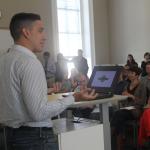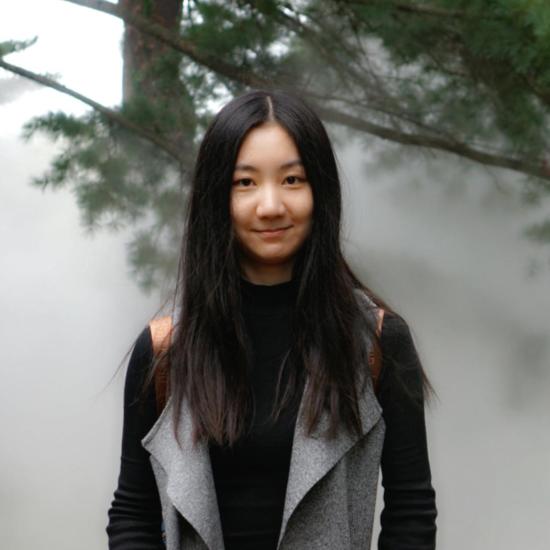Yangyang Yang, a fourth-year Ph.D. student at the UC Berkeley School of Information, has been awarded a Summer 2025 Research Award by the Berkeley Center for New Media (BCNM). Yang joins several other graduate students in Ethnic Studies, Environmental Design, Geography, Film and Media, Rhetoric, and Anthropology who have been selected to receive this award.
Yang, who is advised by Associate Professor Kimiko Ryokai, focuses on design research in human-computer interaction (HCI). She is eager to explore how technology-mediated experiences (e.g., mixed reality, tangible computing) might help people understand the aesthetics of environmental degradation, activate an embodied and multisensory awareness of ecological systems, and reimagine a human-decentered worldview.
A recent project utilized mobile augmented reality (MAR) to help people experience Berkeley’s natural environment and its history from the perspective of Strawberry Creek, in turn de-centering humans and sparking an appreciation for nature. At the time, Yang stated, “We hope this project can serve as an inspiration to HCI researchers, encouraging a shift of focus from human-centered design towards designing technology to understand the more-than-human world and collaborate with the nonhuman entities.”
She has also been participating in a three-year collaborative project with The Lawrence Hall of Science, mak-’amham (an Ohlone-founded educational organization)/Café Ohlone, and the East Bay Ohlone Community to center Indigenous and Ohlone youth in the co-design of mixed reality museum exhibits. In 2023, the National Science Foundation (NSF) awarded the team, led by Professor Ryokai and The Lawrence’s Ari Krakowski, a grant of $1.29M. Now midway through, the project aims to create interactive exhibits grounded in Indigenous ecological knowledge and values. Yang, who is a graduate student researcher, has designed and facilitated more than 10 co-design workshops and developed prototypes for three exhibits: Acorn Gathering, Tule Boat Journey, and a Music Experience.
Her summer research will focus on distilling these experiences into a framework on how Indigenous ecological knowledge and values of reciprocity and environmental stewardship can be renovated into mixed reality experiences through co-design. She is also interested in how co-design scaffolds Indigenous youth’s learning across both STEM and cultural domains.









